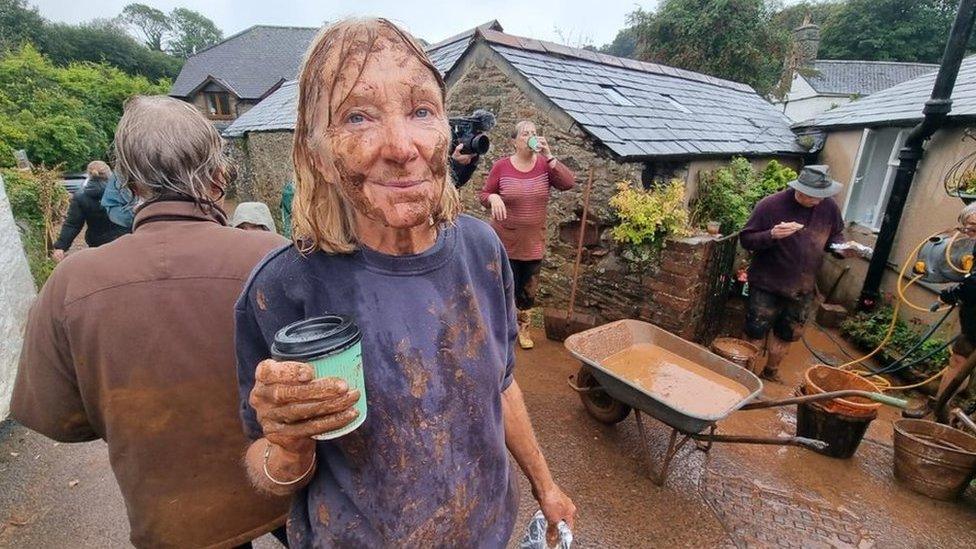Farmers warned sugar beet and potatoes 'high risk' for flooding
- Published
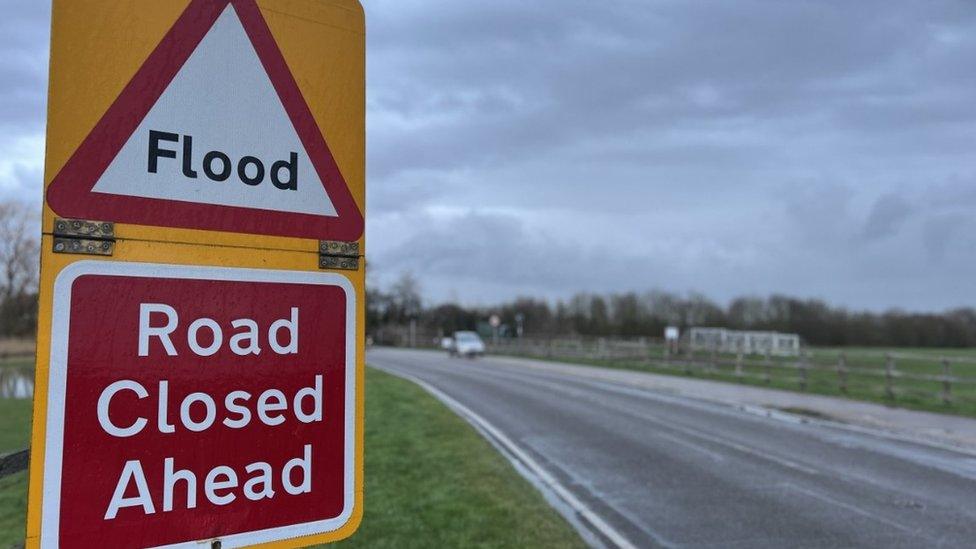
Some areas need careful management to prevent soil compaction and run-off, the Environment Agency said
Farmers in Devon and Cornwall are being urged to avoid growing crops that could increase the risk of flooding and pollution.
Some "high risk" crops can cause soil-erosion and muddy run-off if they are grown on unsuitable soils and slopes, the Environment Agency (EA) said., external
They include maize, fodder beet, potatoes and other root vegetables.
The campaign targets parts of Cornwall and north and east Devon with light and heavy soils.
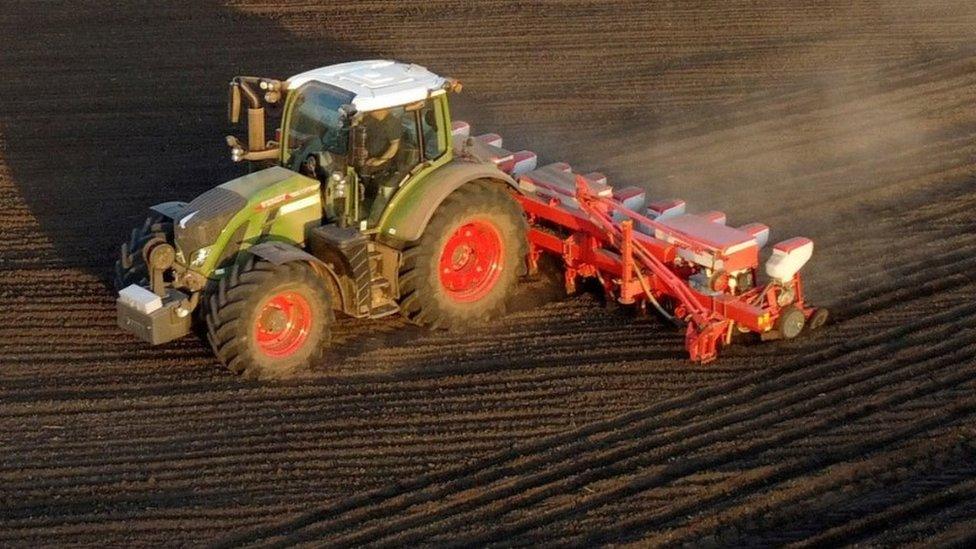
High-risk crops include maize, fodder beet, potatoes and other root vegetables
They are vulnerable to extreme weather events and need careful management to prevent soil compaction and run-off, said the EA.
The agency advises farmers to choose appropriate crops, use cover crops, maintain buffer strips and avoid overgrazing.
It also warned enforcement action could be taken if farmers failed to comply with the Farming Rules for Water, external, which were introduced in 2018.
James Wimpress, land management project manager for the EA in Devon and Cornwall, said: "We want to raise awareness of how devastating flooding is when exacerbated by the production of high-risk crops in unsuitable locations, so farmers can make more sustainable decisions in line with our changing climate."
Healthy soil
The campaign is supported by the National Farmers Union and the Maize Growers Association, said the EA.
Alex Stevens, NFU South regional policy manager, said: "Investing in and protecting soil health is crucial to the nation's farming systems and is essential to British food production.
"Healthy soil delivers in reducing flood risk, supporting wildlife habitats and biodiversity, and the sequestration and storage of carbon, reducing our emissions.
"Any proactive advice that can support farmers and land managers in delivering these objectives is welcomed, while also enabling farmers to produce the crops the market requires.
"We need to see an enabling, supportive approach that recognises the many food production challenges, alongside the work farmers already do to protect natural resources like soil, which is a crucial asset."

Follow BBC Cornwall and BBC Devon on X (formerly Twitter), external, Facebook, external and Instagram, external. Send your story ideas to spotlight@bbc.co.uk, external.
Related topics
- Published2 November 2023
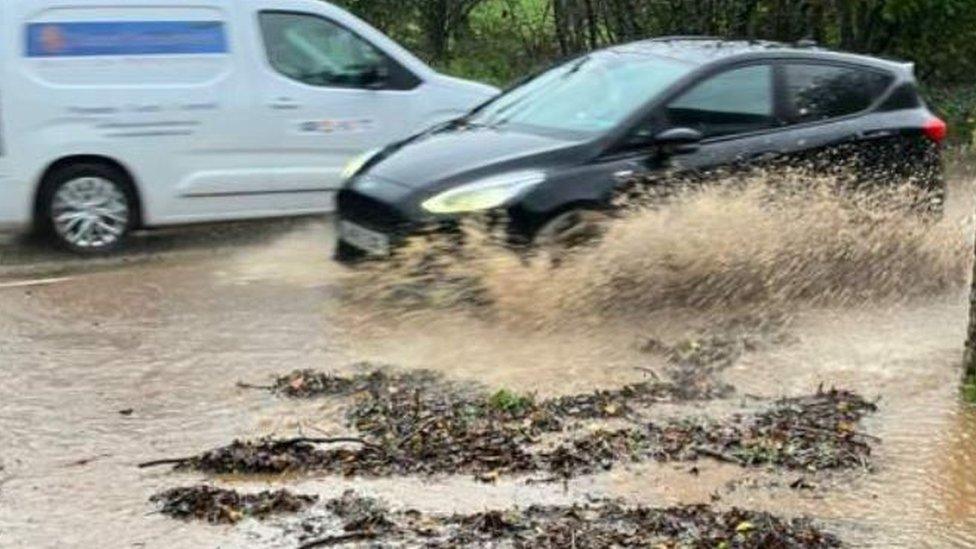
- Published29 October 2023
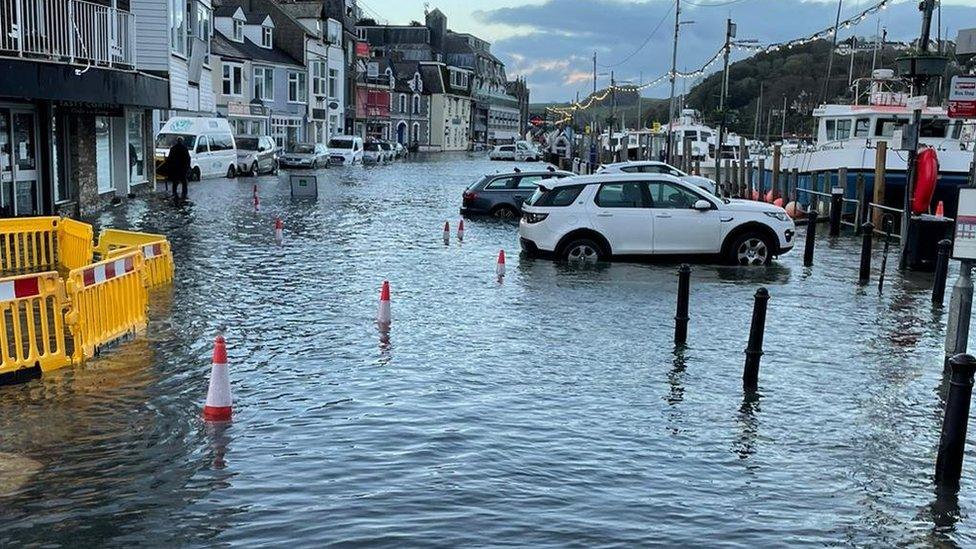
- Published18 September 2023
